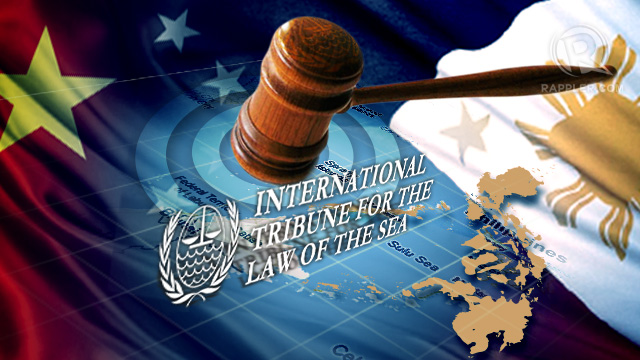SUMMARY
This is AI generated summarization, which may have errors. For context, always refer to the full article.

MANILA, Philippines – Taking China to an international arbitration court over the West Philippine Sea will not revolve the territorial dispute even if the panel rules in favor of the Philippines, an expert said on Thursday, January 31.
The case will lead to a scenario similar to the current one, according to Jay Batongbacal, director of the University of the Philippines’ Institute for Maritime Affairs and Law of the Sea.
“It will be another step away (from a resolution of the conflicting claims) even if the arbitration succeeds… The situation will still be similar even after the arbitration. The problems will still be there,” he explained at a forum about the issue.
Batongbacal noted that the case filed by the Philippines is asking for China’s territorial claims based on the 9-Dash Line map in the South China Sea to be declared contrary to the United nations Convention on the Law of the Sea (UNCLOS), signed by both countries.
But even such a ruling would not prevent Beijing from insisting that it has territorial sovereignty over most of the South China Sea, he said.
Why not conciliation?
In the same forum, the UP professor was also asked why the government did not seek a conciliation process under UNCLOS before pushing for arbitration.
Conciliation, Batongbacal pointed out, would have been a good initial strategy; had it failed, it would have required China to accept arbitration, which it has already rejected, as is Beijing’s right under UNCLOS.
But the Philippines lacks experience in conciliation proceedings and “there is no trust in a negotiated settlement on our side,” Batongbacal said.
In any case, the UP professor stressed that “no one can force China to participate in the arbitration process (…) and no one can force China to accept the arbitration panel’s decision either.”
That will turn China into an international outlaw of some sort.
“China will have to face the criticism of the international community that it is not a law-abiding citizen. If [China] is willing to accept that criticism is the question,” Batongbacal said.
Arbitration can change China’s behavior
At the same forum, fellow UP professor Aileen Baviera warned of a further cooling of bilateral relations between the Philippinesn and China
The former director of the government’s Foreign Service Institute said the China’s “unhappiness” will manifest in various ways but noted that “we don’t want enmity with China in the long term.”
Baviera acknowledged, though, that the case could help moderate China’s behavior in the South China Sea, where Chinese ships have been more active in implementing Chinese laws even in areas outside their recognized 12-nautical-mile territorial waters.
Add a comment
How does this make you feel?
There are no comments yet. Add your comment to start the conversation.